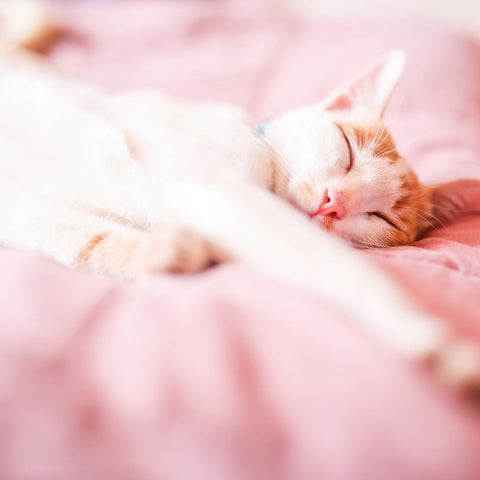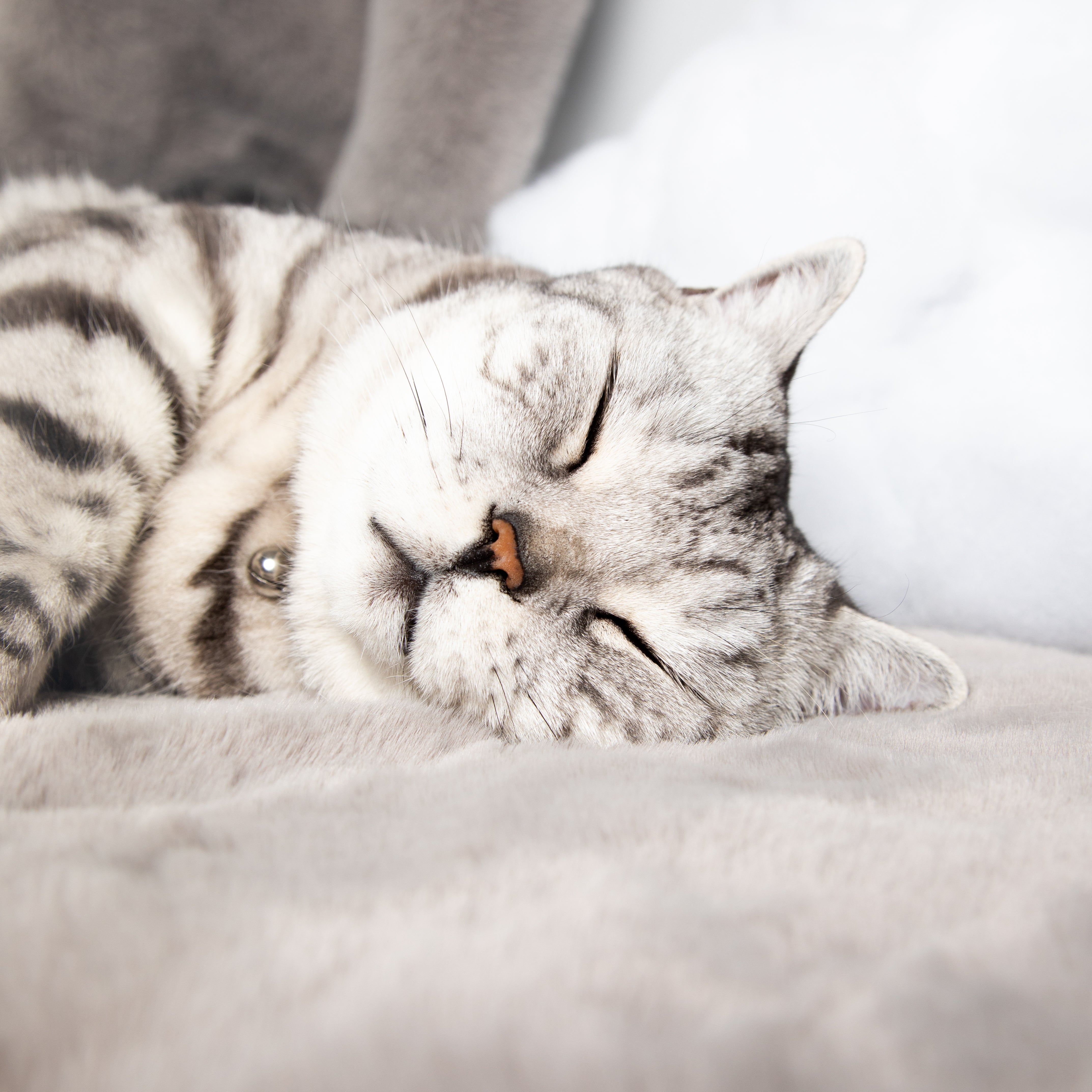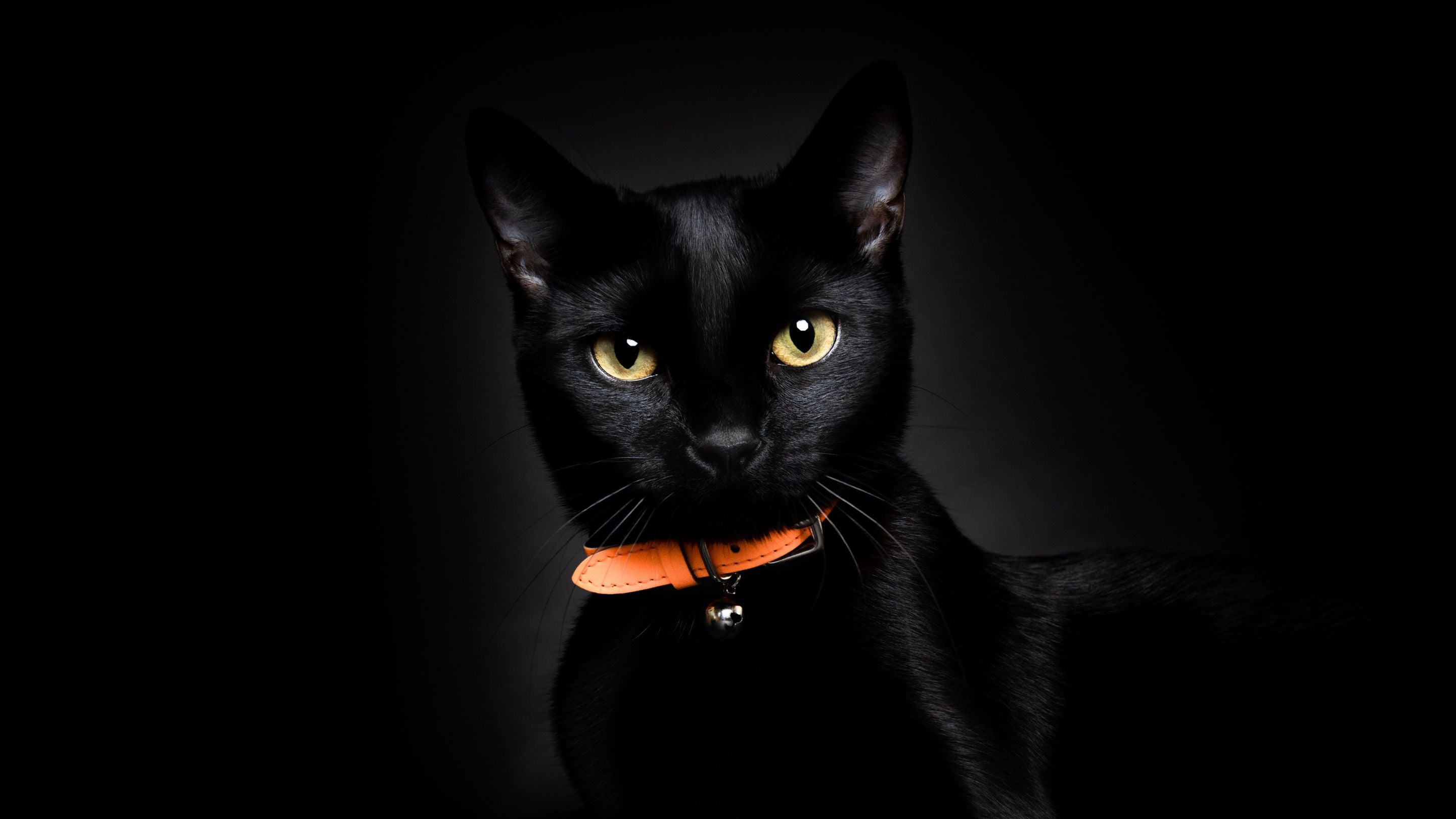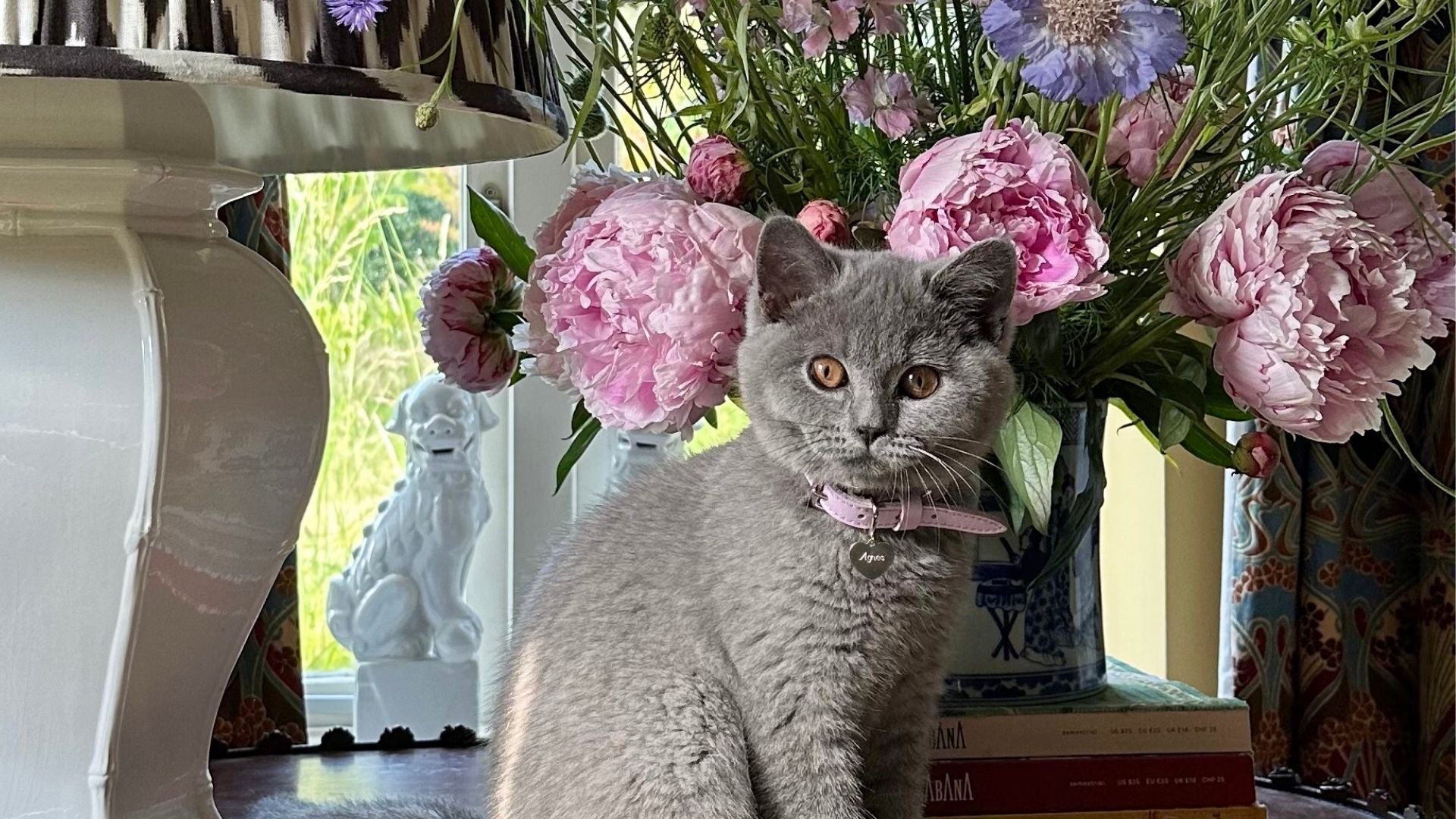
We know cats love to sleep, but why is catnapping so high on our kitty's agenda? This article answers some of the most common questions about our cats and their sleeping habits and how their behaviours might affect our own sleep (or lack thereof!)
Why do cats sleep so much?
Our cat's love of sleeping lies in their genetics and their feline ancestor's drive for survival. Domesticated kitties are descended from African wildcats that needed to be good hunters to stay alive, and sleeping was essential for conserving energy before long hunts. This learned behaviour is still ingrained in today's cats, even though food (and bountiful treats) is readily available to them.
How many hours a day do cats sleep?
Most cats will spend between 12-18 hours per day asleep, with some kittens and elderly cats snoozing for an even longer. Cats have an uncanny way of finding the cosy corners of our homes for their many catnaps. You will find them alternating between their favourite spots throughout the day and night, seeking out warm and quiet areas where they can rest undisturbed.

How long do cats sleep?
Cats have a polyphasic sleep pattern, which means they sleep multiple times a day. Catnaps range from 50 to 115 minutes but can be as short as 5 minutes. The length of their naps will depend on their environment - a noise or even the smell of food might rouse them into action at a moment's notice. This sleep pattern allows our cats to replenish their energy reserves after hunting, exploring and playing so they can get back to these activities in a heartbeat.
Why does my cat need to sleep so much?
Like humans, sleeping allows cats to maintain their emotional balance and stimulate various recovery processes. This is fundamental for kittens, who need to learn and develop vital physical and mental skills. It's also important for older cats, who need longer time to recuperate due to increasing strain from physical activity.

Why does my cat twitch in their sleep?
You may have noticed your cat twitching in their sleep, but this is nothing to worry about. Twitching occurs when a cat enters the deep sleep phase of their sleep cycle, where kitties dream and replay the day's events in their mind. Your cat receives an excellent dose of high-quality and restful sleep in this stage, which is vital for learning, brain health, and memory. It also shows they feel relaxed and safe in their environment.
Do cats dream?
Yes, experts believe cats dream, just like many other mammals. What do they dream about? This question has been on the minds of many writers and poets throughout history; no one knows for sure. If your kitty goes outside or has another kitty companion, those events are likely playing through their mind during sleep. And perhaps they're even dreaming about you or their delicious dinner; most likely, we think their dreaming about the pens and keys that they pushed off of your table just so they could watch them fall!
What makes the purrfect catnap spot?
Cats generally prefer sleeping in warm and cosy environments that make them feel safe, and you will observe them napping in many different areas throughout the day. Their napping behaviour may also change based on the weather. If it's rainy and dismal outside, you will probably find them curled up on your bed or somewhere warm and soft.
What makes the best cat bed?
Cats want three things from a bed - warmth, comfort and variety. Cats love warmth; we all know how they enjoy basking in sunbeams! They adore soft materials - faux fur is perfect because it reminds them of kittenhood snuggled up suckling their mama. And as for Variety? Cats are notoriously choosy about where they sleep. Having a bed that you can move to your cat's favourite locations is a good idea, as is setting up different cat-friendly spaces for them to enjoy at different times of the day depending on their mood.
Does my cat need a bed?
It's a running joke between cat parents that whenever they get their kitty a fancy cat bed, they seem to be more interested in the packaging box! You can create cosy corners for your kitty without spending a fortune. Try putting an old jumper in a cardboard box, a sheepskin rug or some comfy material by a sunny window or near a radiator. Observe where your cat already likes to snooze and then make those areas even more inviting. Thermal beds and furry throws are perfect for this and have the double benefit of protecting your furniture from your cat's fur and claws.

Why does my cat meow all night?
We've spoken about how cats can get high-quality sleep, but what should you do if your cat continually disturbs your sleep by meowing or scratching at the bedroom door? Typically a meowing moggy wants your attention, some playtime, stokes and possibly a meal. This has been a big problem for me in the past with Percy (my male British Shorthair who is incredibly affectionate but also pretty needy). I was sleeping poorly as a result. I took the following steps, which have helped.
How to get a better night's sleep with a noisy or needy cat?
- Play some active games with your cat before bed and reward good behaviour with treats
- Wind down with your kitty if you're at home in the evening, give them lots of love, attention and strokes or try grooming them in the evening to relax them.
- Feed them half of their dinner around 6 pm and the rest just before you go to bed.
- Take your cat to a separate room when it's time for sleep (I call my lounge the cat's bedroom). Make sure they have a warm and inviting place to sleep and some toys that they can play with on their own when they are feeling more active.
Why does my cat wake me up in the morning?
Cats are crepuscular creatures which means they have two prominent peaks of activity, one around daybreak and the other around dusk. It's believed that this sleeping pattern is linked to a cat's predatory instincts, enabling them to be awake for hunting the early birds in the morning and again in the evening for nocturnal rodents. This means the early morning wake up call for breakfast and a cuddle is pretty difficult to prevent, but you can try following the above steps. Hopefully, your kitty will come to visit you at a more reasonable hour as a result!
Should I let my cat sleep on my bed?
There is something wonderful about snuggling up with your feline friend at night by letting them nap at the end of your bed. I used to let Percy sleep on the bed, but he's grown more restless in his older age, and he tends to wake up about 2 am and come and sit on my chest or the pillow next to my head. I found it hard to sleep through a hefty 8kg ball of fluff loudly purring and nibbling my ear, so allowing him to sleep in the bedroom is a rare occurrence these days! He does however sleep on my bed in the daytime and seems to really like this spot in the morning when it's sunny.

Percy and I having a cuddle
Is it okay to wake a sleeping cat?
One vital point to emphasise is, do not disturb a sleeping cat! Whilst a cat might fall asleep as you are stroking them, it's best to avoid touching them if they are already asleep. Likewise, please do not attempt to keep a cat awake or prevent them from sleeping. Keeping a cat awake to avoid late-night cat adventures will be futile and only result in a distressed cat.
Is my cat sleeping too much?
Several factors may disrupt your cat's typical sleeping pattern. Some of these include a change of environment (home or familial), ageing and even the weather. On days when the outdoors may be colder or wetter than usual and impede your cat's outdoor exploration, they will often make up for this by taking the opportunity to catch up on their 40 winks.

If you find that your furry companion's sleep pattern becomes continuously excessive and abnormal, it might be due to an underlying condition. As each cat is different in their particular sleep habits, you will know best what may be out of the norm. If you are concerned, consult your veterinary practitioner.





Share:
Gift Guide 2023: Best Gifts for Cat Lovers
Cat Owner Guides: How to Create a Cat-Friendly Home